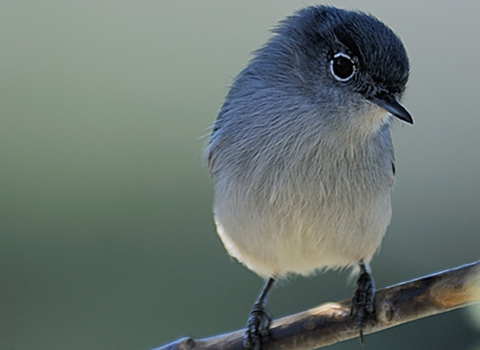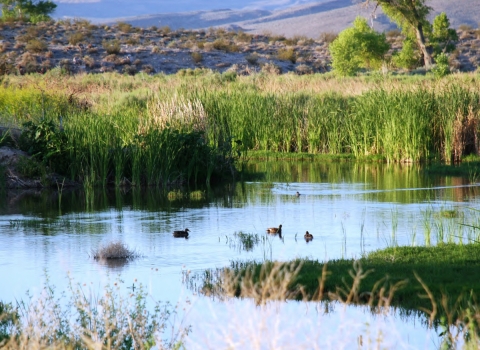The U.S. Fish and Wildlife Service has completed initial reviews on petitions to list three species under the Endangered Species Act (ESA). The Service has determined that petitions to list the Alexander Archipelago wolf and western ridged mussel contain substantial information that listing may be warranted and rigorous status reviews will be initiated on these species.
The petition to delist the golden-cheeked warbler was found to not have substantial information indicating this action is warranted. As such, it will remain protected as endangered under the ESA.
The Alexander Archipelago wolf occurs throughout mainland and island forests of southeastern Alaska and coastal British Columbia. The species is generally smaller and darker than continental gray wolves and prefers to den beneath the root wads of large trees. While their primary prey is black-tailed deer, the generalist predator also consumes intertidal prey, salmon and small mammals as opportunities arise. Apart from illegal trapping and hunting, potential threats to the wolf are indirect, affecting their habitat and prey sources. These stressors are associated with logging and road development, climate change climate change
Climate change includes both global warming driven by human-induced emissions of greenhouse gases and the resulting large-scale shifts in weather patterns. Though there have been previous periods of climatic change, since the mid-20th century humans have had an unprecedented impact on Earth's climate system and caused change on a global scale.
Learn more about climate change , loss of genetic diversity and inbreeding depression.
The Western ridged mussel is a long-lived mollusk found throughout Washington, Oregon, California, Idaho, Nevada, and southern British Columbia. The filter-feeders can form dense beds in freshwater rivers and lakes. Potential threats to the western ridged mussel are associated with habitat destruction and modification, range curtailment, aquatic invasive species invasive species
An invasive species is any plant or animal that has spread or been introduced into a new area where they are, or could, cause harm to the environment, economy, or human, animal, or plant health. Their unwelcome presence can destroy ecosystems and cost millions of dollars.
Learn more about invasive species , disease, demographic factors and impacts to water quantity, quality, flow and temperature regimes.
The golden-cheeked warbler nests exclusively in the oak-juniper forests of central Texas. The Service listed the species as endangered in 1990 and has periodically analyzed this status through the five-year review process. The goal of these status assessments is to determine whether a threatened or endangered species should be reclassified or delisted. Although the 90-day finding for this species is ‘not-substantial,’ the Service will initiate a full status review of the species which will inform the five-year review process.
The ESA allows citizens to petition the Service to add species to the Endangered Species Act, remove species from the list, and to reclassify species already on the list. To the maximum extent possible, the Service issues a finding on the petition within 90 days of the petition’s receipt.
Substantial 90-day findings represent a relatively low bar, requiring only that the petitioner provide information that the proposed action may be warranted. The next steps involve in-depth status reviews and analyses using the best available science and information to arrive at a 12-month finding. The public can play an important role by sharing relevant information with the Service.
The Federal Register docket numbers and links for the substantial petition findings in this batch are:
| Species | Range | Docket Number | Docket link |
| Alexander Archipelago wolf | AK and BC Canada | FWS–R7–ES–2020–0147 | https://www.regulations.gov/docket?D=FWS-R7-ES-2020-0147 |
| Western ridged mussel | CA, OR, WA, ID, NV, and BC Canada | FWS–R1–ES–2020–0150 | https://www.regulations.gov/docket?D=FWS-R1-ES-2020-0150 |
| Golden-cheeked warbler | TX | FWS–R2–ES–2016–0062 | https://www.regulations.gov/docket?D=FWS-R2-ES-2016-0062 |
The notice for the above findings will be available in the Federal Register Reading Room on July 26, 2021 at https://www.federalregister.gov/public-inspection on the 2021 Notices link under Endangered and Threatened Wildlife and Plants.
For more information on the ESA listing process, including 90-day findings and status reviews, please go to www.fws.gov/endangered/esa-library/pdf/listing.pdf.



